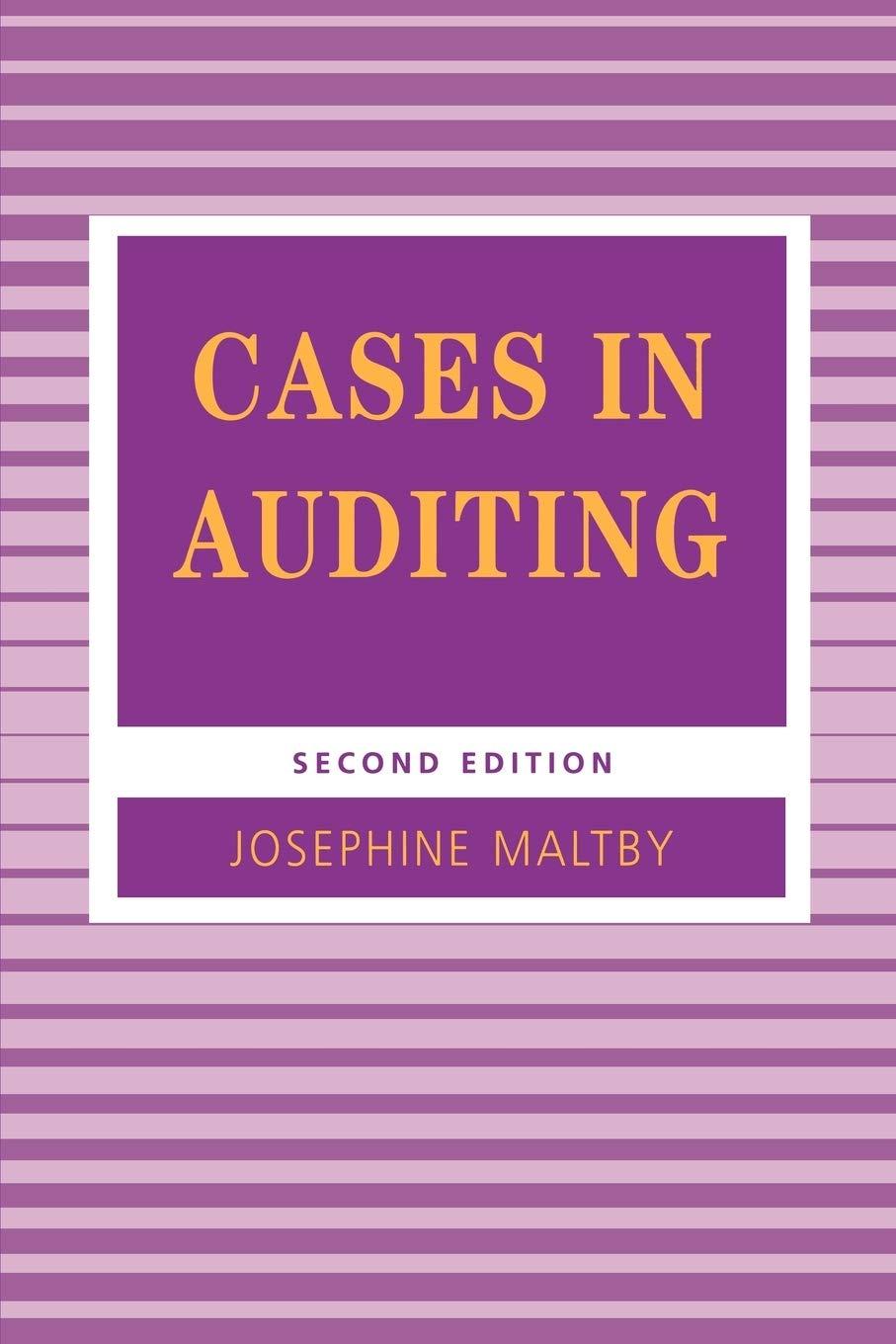Question
Measurement Attributes, including Fair Value, in Financial Statements Part 1: Measurement Attributes Used in Public Company Balance Sheets Choose a U.S. public company and locate
Measurement Attributes, including Fair Value, in Financial Statements
Part 1: Measurement Attributes Used in Public Company Balance Sheets
Choose a U.S. public company and locate its most recent year-end balance sheet in the companys 10-K. Your goal is to understand and describe how each asset on the balance sheet is measured, citing guidance from the Codification indicating the requirements for the measurement.
The following table and notes show an example of the deliverable you should provide. Follow this format; list the balance sheet item, amount, and a brief summary of its measurement basis. Use additional notes to show (concisely) the Codification justification for this measurement, as well as to add any discussion that helps a readers understanding of the item and to share any additional facts. Additionally, when you come across balance sheet items that are industry- or company-specific, provide additional discussion of those items.
For example, you can contrast your companys practices to other companies, point out items unique to your companys industry, highlight any recent changes in measurement method, and so on. Citing a lack of information will not receive full credit if there is a lack of information then a different company should be selected to ensure you can complete all parts of this assignment.
Example for Part 1:
ABC Company, year-end 20XX balance sheet
| Financial Statement Item | Amount | Basis of measurement | Reference (to notes below) |
| Inventory | $100,000 | Lower of cost or market | Note 1 |
| Loans receivable | $200,000 | Cost less uncollectible accounts reserve | Note 2 |
Note 1:
ABC Company has inventory, primarily in the form of purchased fuel, which it carries at cost. This is appropriate in accordance with ASC XXX-XX, which states: . One thing that is unique about ABC Companys inventory is that the Company . . .
Note 2:
ABC Company, through its Finance division, routinely makes loans to customers. These loans are carried at cost less a reserve for uncollectible accounts. ASC XXX-XX permits this practice, stating: . In 20X1, the auditors for ABC Company found that the Companys uncollectible accounts reserve policy was insufficient and issued a qualified audit opinion.
Part 2: Corporate Fair Value Disclosures:
Using the same 10-K filing for the company you selected in part 1, respond to the following:
- 2a. What are some of the companys most significant assets/liabilities that are measured at fair value?
- 2b. For the #1 most significant (by dollar amount) asset or liability stated in part 2a , locate the companys valuation technique disclosure. Briefly, summarize the companys approach to measuring this item. Next, locate the Codification guidance requiring this (most significant) asset or liability to be measured at fair value. In your own words summarize this guidance.
- This is the Balance sheet we got it
-
Example for Part 1:
ABC Company, year-end 20XX balance sheet
Financial Statement Item
Amount
Basis of measurement
Reference
(to notes below)
Inventory
$100,000
Lower of cost or market
Note 1
Loans receivable
$200,000
Cost less uncollectible accounts reserve
Note 2
Step by Step Solution
There are 3 Steps involved in it
Step: 1

Get Instant Access to Expert-Tailored Solutions
See step-by-step solutions with expert insights and AI powered tools for academic success
Step: 2

Step: 3

Ace Your Homework with AI
Get the answers you need in no time with our AI-driven, step-by-step assistance
Get Started


